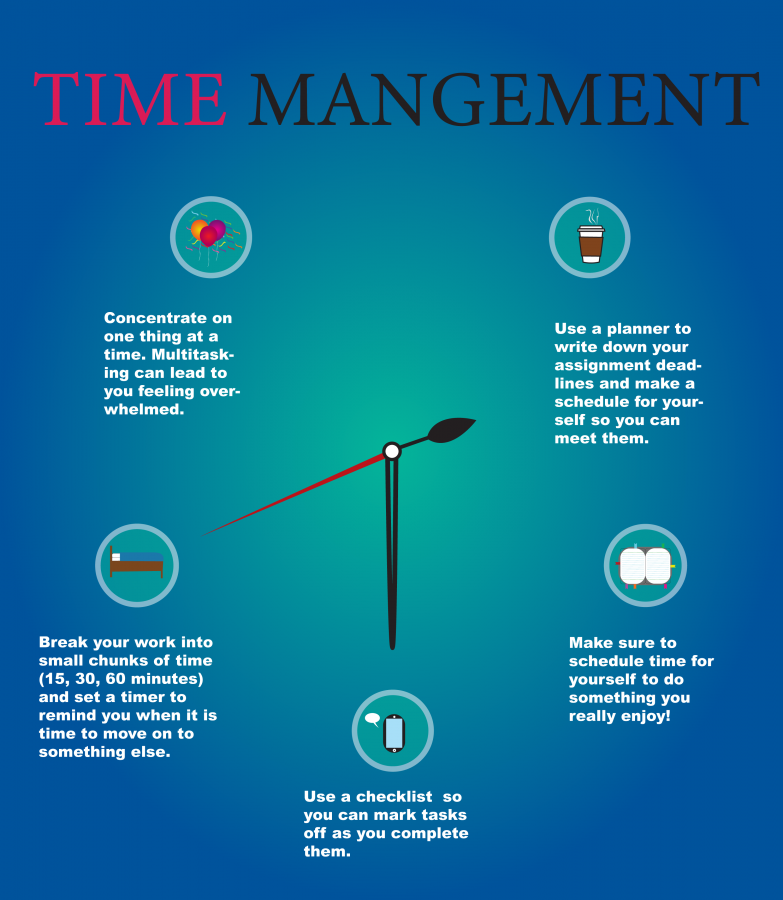Time Management Tips for Balancing Schoolwork and Part-Time Jobs
Time Management Tips for Balancing Schoolwork and Part-Time Jobs
The college experience is often romanticized – late-night study sessions, vibrant campus life, and the thrill of newfound independence. However, the reality for many students is a balancing act between demanding coursework, a part-time job, and personal commitments. Juggling these responsibilities can feel overwhelming, leading to stress, fatigue, and a constant feeling of being behind. But fear not! By implementing strategic time management techniques, you can effectively navigate this complex landscape and thrive in both your academic and professional endeavors.
This comprehensive guide will provide you with a roadmap to success, exploring various time management strategies and offering practical tips to optimize your time, minimize stress, and excel in your studies while maintaining a steady income.
Understanding the Challenge
Before diving into specific strategies, it's crucial to acknowledge the unique challenges presented by balancing schoolwork and a part-time job. Students in this situation face:Limited Time: The most obvious challenge is the scarcity of time. You're already juggling a full course load and potentially extracurricular activities, and now you're adding work responsibilities on top of that.
Increased Stress: The added pressure from both academic and work demands can lead to increased stress levels, impacting your mental and physical health.
Potential for Burnout: The constant juggling act can lead to exhaustion and burnout if not managed properly.
Difficulty Prioritizing: Deciding which task deserves your attention first can be a struggle, especially when deadlines and shift schedules clash.
Building a Strong Foundation: The Essentials
1. Schedule Your Time:Calendar is King: Embrace the power of a calendar! It doesn't have to be fancy; even a simple paper planner or a digital calendar app can work wonders. Block out class times, work shifts, and important deadlines. This creates visual clarity and helps you anticipate potential conflicts.
Time Blocking: Once you have your schedule, utilize time blocking techniques. Allocate specific blocks of time for studying, working, and personal activities. This forces you to focus on one task at a time and prevents the feeling of being overwhelmed by a massive to-do list.
Prioritize and Plan: Start by identifying your most crucial tasks. For example, if a major exam is approaching, prioritize study time over other activities. This principle helps you allocate your limited time efficiently.
2. Set Realistic Expectations:Don't Overcommit: Be honest about your capabilities. If you're already struggling to keep up, don't take on additional commitments like a second job or too many extracurricular activities.
Be Flexible: Life throws curveballs. Recognize that unexpected situations may arise, and be prepared to adjust your schedule accordingly.
Embrace the 80/20 Rule: The Pareto Principle states that 80% of results come from 20% of effort. Focus on the most critical tasks and delegate or eliminate less important ones.
3. Learn to Say "No":Prioritize Your Wellbeing: Saying "no" to requests that would overload you is a sign of self-care. Don't be afraid to decline invitations or extra work if it compromises your ability to succeed in both school and your job.
4. Find Your Peak Productivity Times:Understand Your Circadian Rhythm: Are you a morning person or a night owl? Identify your most productive hours and schedule your most demanding tasks during those times.
Avoid Multitasking: While it might seem efficient, multitasking actually reduces productivity. Focus on one task at a time to maximize your concentration.
5. Embrace Technology:Productivity Apps: There are countless apps designed to help you manage your time effectively. Experiment with different options like Todoist, Asana, or Trello to find what works best for you.
Study Apps: Utilize apps like Quizlet, Anki, or Chegg to enhance your learning experience and make studying more efficient.
Time Tracking Tools: Track how you spend your time to identify areas where you can be more efficient. Apps like Toggl or RescueTime can provide valuable insights.
Strategies for Balancing Schoolwork and Work
1. Optimize Your Work Schedule:Negotiate Flexibility: If possible, communicate with your employer about your academic commitments and see if you can adjust your work schedule to accommodate your classes.
Seek Out Flexibility: Look for part-time jobs that offer flexible hours, remote work options, or compressed work weeks.
Avoid Late Shifts: If possible, avoid late shifts that interfere with your sleep schedule and impact your ability to focus the next day.
2. Maximize Your Study Time:
 Effective Studying Techniques: Use active learning methods like summarizing, flashcards, and practice tests to improve comprehension and retention.
Effective Studying Techniques: Use active learning methods like summarizing, flashcards, and practice tests to improve comprehension and retention.Group Study Sessions: Collaboration with peers can enhance understanding and create a supportive study environment.
Utilize Library Resources: Take advantage of library resources like quiet study spaces, access to research databases, and tutoring services.
3. Prioritize Your Mental Health:Maintain a Healthy Lifestyle: Prioritize sleep, exercise, and healthy eating habits to maintain your energy levels and reduce stress.
Schedule Time for Relaxation: Even short breaks can help you recharge and improve focus. Engage in activities you enjoy, such as reading, listening to music, or spending time with loved ones.
Don't Be Afraid to Ask for Help: Reach out to your professors, classmates, or a counselor if you're struggling. Seeking support is a sign of strength, not weakness.
4. Avoid Procrastination:Break Down Large Tasks: Break down large assignments into smaller, more manageable chunks. This makes the task feel less daunting and helps you maintain momentum.
Set Realistic Deadlines: Don't wait until the last minute. Set deadlines for yourself and work towards them consistently.
Eliminate Distractions: Identify and eliminate distractions while working or studying. Turn off notifications, find a quiet space, and avoid social media during focused work periods.
5. Embrace the "Pomodoro Technique":Work in Short Bursts: The Pomodoro Technique involves working in 25-minute intervals followed by a 5-minute break. After four "pomodoros," take a longer 20-30 minute break.
Boost Focus: This technique helps you stay focused for shorter periods and avoids mental fatigue.
6. Utilize Time-Saving Hacks:Combine Errands: Plan your errands to save time and avoid multiple trips.
Cook in Bulk: Meal prep can save you time during busy weeks.
Delegate Responsibilities: If possible, delegate tasks to others.
7. Stay Organized:Clear Workspaces: A cluttered workspace can lead to mental clutter. Keep your study and work areas organized to enhance focus and efficiency.
Digital Filing System: Use cloud storage services or file folders to keep digital documents organized and easily accessible.
8. Seek Out Support:Talk to Your Professors: Communicate with your professors about your part-time job and any potential conflicts.
Connect with Your Employer: Be transparent about your academic commitments and explore flexible work arrangements.
Support Network: Surround yourself with a supportive network of friends, family, or classmates who can offer encouragement and understanding.
Overcoming Challenges and Maintaining BalanceRemember Your Goals: Keep your long-term goals in mind. This will provide motivation and help you prioritize tasks.
Practice Self-Care: Prioritize your mental and physical health. Make time for activities that bring you joy and help you de-stress.
Be Flexible: Unexpected events are inevitable. Learn to adapt and adjust your schedule as needed.
Don't Be Afraid to Ask for Help: Reach out to your support network, professors, or a counselor when you need it.
Celebrate Your Successes: Acknowledge your achievements, no matter how small. This reinforces your sense of accomplishment and motivates you to continue striving for your goals.
Conclusion
Balancing schoolwork and a part-time job can be a demanding challenge, but it is achievable with strategic time management, realistic expectations, and a commitment to self-care. By implementing the tips outlined in this guide, you can navigate this complex landscape, maximize your productivity, and succeed in both your academic and professional endeavors.
Remember, time management is a skill that improves with practice. Experiment with different strategies to find what works best for you and don't be afraid to adjust your approach as needed. Most importantly, be patient with yourself and celebrate your progress along the way. You've got this!

Post a Comment for "Time Management Tips for Balancing Schoolwork and Part-Time Jobs"